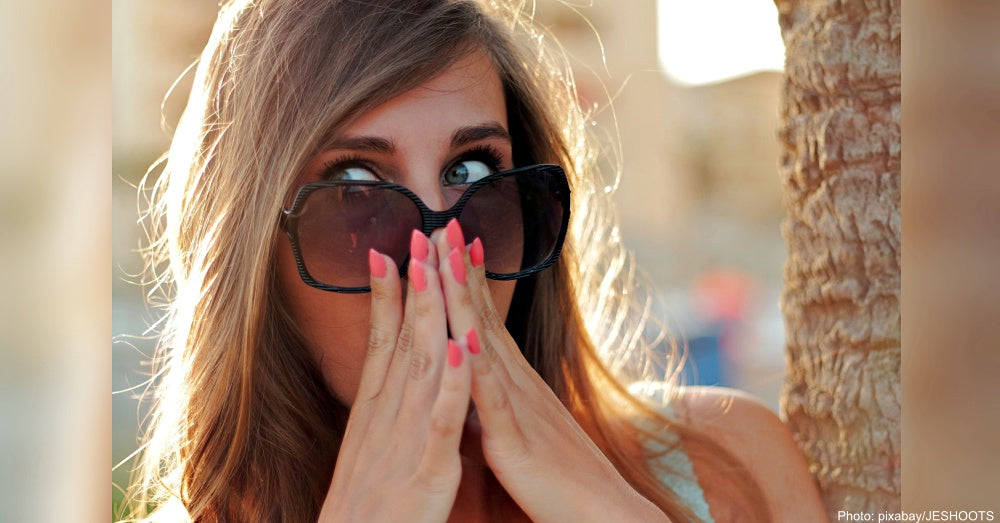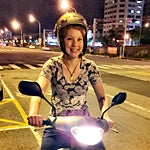6 Things You've Been Told Cause Cancer, But Are Actually Safe!
Katie Taylor
Can we all agree that we have enough to worry about without constantly wondering if coffee or radio waves or walking backwards on Tuesdays causes cancer? It's hard enough taking good care of ourselves without cancer accusations flying around.
False claims make us more likely to ignore solid advice, which means they do double damage. Dr. Kristi Funk, doctor to Angelina Jolie, wrote a book called Breasts, The Owner's Manual. In the book, Dr. Funk talks about ways that women can truly reduce their breast cancer risk, and also what cancer-causing myths we can stop worrying about right now.
Here are the 6 things Dr. Funk says you can cross off your worry list:
 Photo: pixabay/Alexas_Fotos
Photo: pixabay/Alexas_Fotos
1. Deodorant and Antiperspirant
If you've been trying to make the hard decision between smelling fresh and reducing cancer risk, good news: deodorant and antiperspirant are not linked with increased breast cancer risk. Now we can all raise our hands in confidence!
 Photo: AdobeStock/Sergey Ryzhov
Photo: AdobeStock/Sergey Ryzhov
2. Fertility Drugs
Dr. Funk says that fertility drugs do not increase your risk of breast cancer. Breastcancer.org published findings that women who took fertility drugs and conceived a child did have a higher breast cancer risk, but only higher than women who took fertility drugs and did not conceive. The women who conceived had about the same risk as an average women.
3. Caffeine
Caffeine is found in coffee, tea, and chocolate, and we are so glad to have Dr. Funk confirm that these foods are safe! A judge in California recently ruled that coffee should be labeled as a possible cancer-causing agent, but research does not support the ruling and it's expected to be appealed. The American Cancer Society, the World Health Organization, and Breastcancer.org agree that coffee is not only safe in moderation, but that it may help protect against some types of cancer.
 Photo: AdobeStock/kolotype
Photo: AdobeStock/kolotype
4. Wearing a bra
We support whatever decision you make as far as strapping in the girls or letting them fly free, but rest assured that unless your bra is made from toxic waste, wearing one will not increase cancer risk.
5. Taking birth control pills
Dr. Funk admits there is a small increase in risk while a woman is taking birth control, but that it's no longer a factor once a woman stops taking it. Risk seems to increase with greater amounts of estrogen, so it may be wise to use the lowest dose your doctor recommends.
 Photo: AdobeStock/areeya_ann
Photo: AdobeStock/areeya_ann
6. Radiation from cell phones, microwaves, television, and power lines
According to Dr. Funk, the radiation from these items is non-ionizing and will not affect breast cancer risk. There have been studies that have linked large amounts of exposure to artificial light to increased cancer risk, but the increased risk seems to be due to compromised sleep patterns. So if you turn off the lights, you can sleep soundly knowing that you haven't increased your cancer risk by binge-watching HGTV. Phew!
So how do we decrease our risk? Dr. Funk recommends the tried-and-true methods: eating a healthy, plant-based diet, maintaining a healthy weight, getting exercise (she recommends 5 hours a week!), and limiting alcohol. Those things aren't easy, but at least we don't have to give up deodorant and chocolate!


